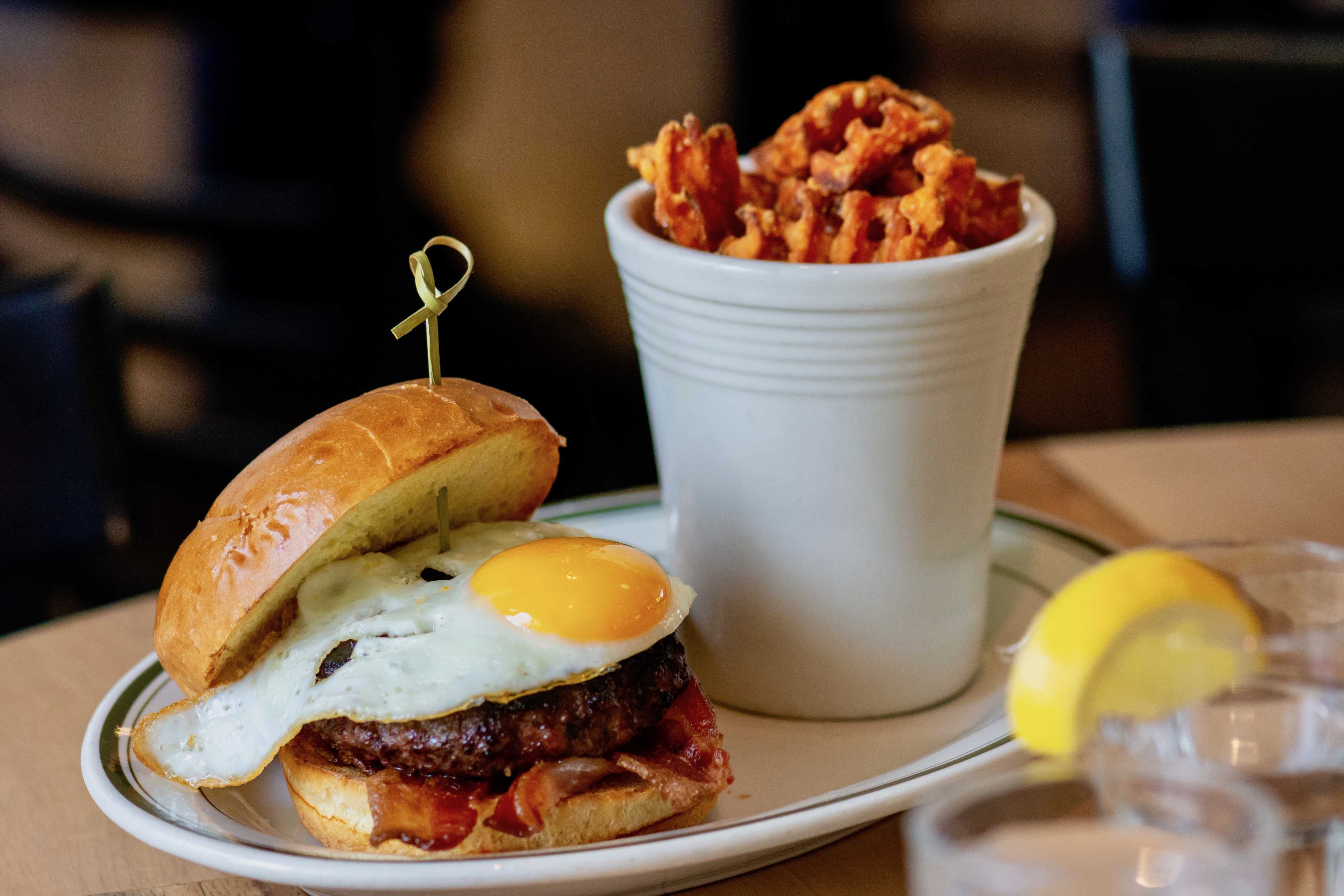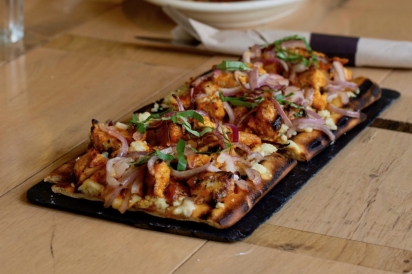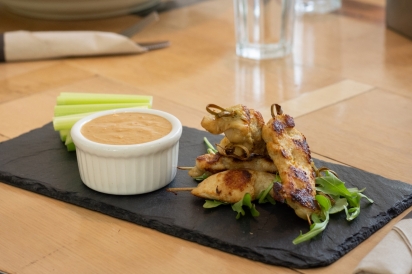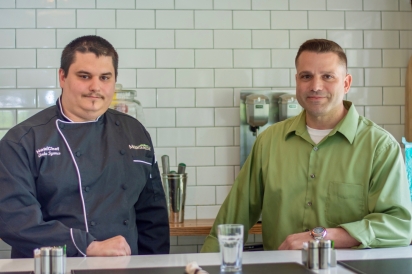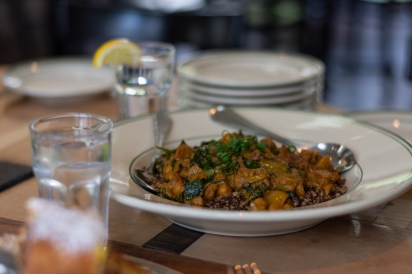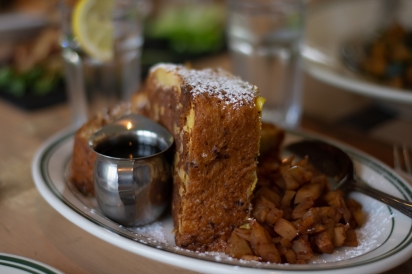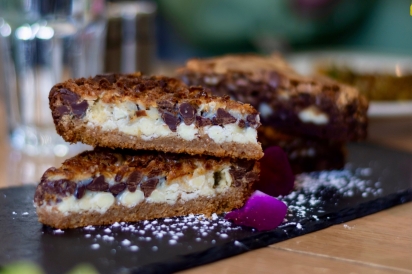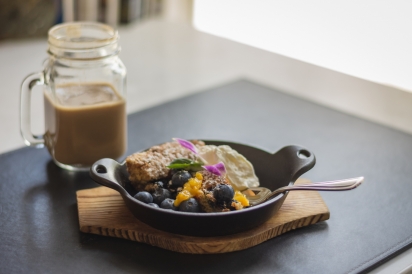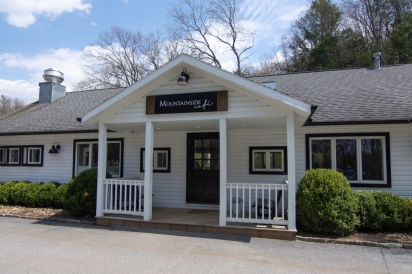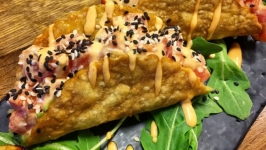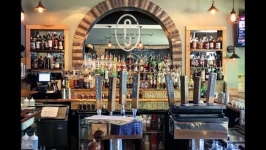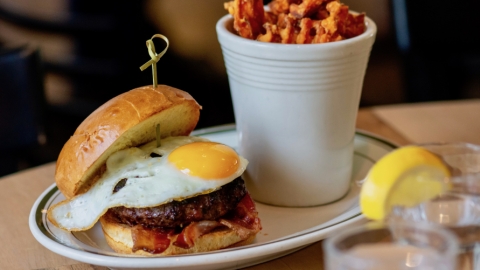Mountainside Café: Healing Through Food
“Let food be thy medicine and medicine be thy food” -Hippocrates
Most restaurants do a good job of quieting a customer’s appetite, but there may not be another eatery that will both delight a diner’s palate and fill his heart as well as Mountainside Café, located in Falls Village. Hidden away in the northwest corner of the state, Mountainside Café has both the menu and story to make it a destination worth traveling for.
The café is associated with Mountainside treatment center, an alcoholism and drug addiction rehabilitation center located about five miles away, in Canaan. Through this partnership, the café is able to fulfill a mission beyond the menu: to provide a stable and compassionate employment venue for the treatment center’s Extended Care clients that allows them to take an advanced step towards recovery. Whether working at the center’s greenhouse and orchard to provide fresh produce, waiting tables, or prepping food at the café, the treatment center’s Extended Care clients play an active role in providing an outstanding dining experience. For both them and the café, it is about rebirth.
The previous owners shuttered what would become Mountainside Café, but not because it was unpopular. Rather, its somewhat isolated location made it difficult to find enough staff to manage. With an interest in filling both a community need and a treatment objective, Mountainside treatment center purchased the location in 2000. Mountainside now manages it, with about 30% of the staff working as full-time employees from the surrounding community, and the remaining 70% from the treatment center’s Extended Care program. In addition to providing another employment venue for local inhabitants, the café “allows us to provide opportunities for our Extended Care clients to work in a structured environment while in recovery,” says Andre Basso, Chief Operating Officer for Mountainside.
While the café’s full-time employees do most of the cooking, many of the café’s other needs fall to Extended Care clients who are participating in the program. For many of them, socializing around food or being at a restaurant can be a trigger for alcohol consumption or other addictive behaviors, and relearning how to work and operate in this sort of environment is an important step in preparing for the challenges they may face upon leaving the program.
The residents can work at the café only after they’ve spent a month in treatment and are ready to take the next step. They are eased into the rigors of restaurant life with different responsibilities that include food preparation, busing of tables, operating the cash register, and washing dishes. By the fifth week, the staff determines if a resident would be comfortable waiting tables and interacting with customers. Regardless of their duties, the residents’ time at the café is capped at 20 hours per week. After three months, most residents leave the facility with both sobriety and the internal tools needed to maintain it.
The kitchen staff is led by Chef Andrew Ignace, now in his second year at the café, who works with his team to create seasonal menus. “I meet with our cooks and listen to their input,” Ignace says, “because it’s not my menu; it’s our menu. Every time we sit down for a new menu, we examine vegan and vegetarian options, as well as seasonal selections. We source as much as we can locally, depending on availability.”
During the summer, the café has the luxury of sourcing some of its fruit and produce from the greenhouse, gardens, and orchard at the treatment center, all of which play roles in rehabilitation programs that the center administers. What isn’t grown there, Mountainside purchases from local purveyors. “Depending on the season, up to 70% of what we serve is locally sourced,” says Culinary Director Jason Chartier, who oversees the entire food service program at both the café and treatment center.
Just as with the café, Mountainside’s agricultural program is accessible to treatment center clients, who often lend their hands to keep the gardens growing. “There are mind and body benefits to working in the garden,” Basso says, “and there is a symbolism to it. You can plant a new seed to begin a new life. The orchards help remind clients that they have the opportunity for a fresh start.”
Ultimately, however, the success and availability of these programs is predicated on the outstanding food that keeps customers coming through the café’s doors. Mountainside Café diners can start their day with a vegetable omelet (stuffed with tomato, spinach, and kale pesto), the unique venison sausage sandwich (with egg and Swiss cheese, served on an English muffin), or a “Super Food Bowl” comprised of quinoa, lentils, barley, kale, mushrooms, and sunny side eggs. Or, for visitors needing something hearty after enjoying a hike in Mount Riga or Housatonic Meadows State Parks, they need look no further than the Sunrise Burger, made with applewood bacon and topped with a fried egg.
And if there is something that’s not on the menu at the café, all a customer has to do is ask. If Ignace and his team have the ingredients available in the kitchen, they will make it. “We had one customer who said he missed eating pancakes, because he was gluten-free,” Ignace explains. “In 15 minutes, he was eating gluten-free pancakes and has been back every weekend since.”
“For total wellness, you need to eat right to heal your body,” says Chartier. It’s a goal that Mountainside Café is helping achieve for both diners and treatment residents alike.
Mountainside Café is open daily from 7am-3pm and includes a brunch menu on weekends.
Mountainside Café: 251 Route 7 South, Falls Village; 860-824-7876


